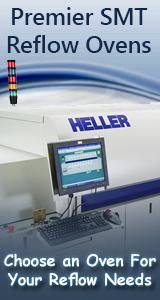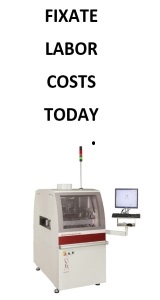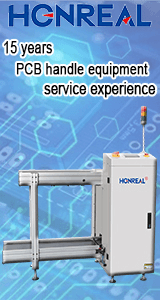How do you know that "approx 450�C" is "too high"? As a side, the temperature on the temperature sensor is: * Inaccurate. * Not the temperature at the solder.
Listen, operators are smart people. They have figured-out that they can solder faster with a hotter iron that they can with a cooler iron.
There are many different working temperatures. Our operators determine working temperatures according to the alloy of the solder and the size of the joint being soldered. Typically a smaller tip and a lower temperature can be used for small joints. For larger joints, like ground planes, a much larger tip and higher temperature are used and sometimes even a higher wattage iron to have enough heat to make the solder joint quickly. There is less damage to the board when using a high wattage iron for a short period of time rather than a low wattage iron for a long period of time. Not to mention that the faster the joint is soldered the more labor time is saved which directly improves our profits.
If the temperature is too high, you can damage your boards. Hand soldering probably causes the greatest threat to the reliability of your product through: * Lifted /partially lifted pads. * Damaged PTH barrels. * Damaged components.
Really, the soldering iron temperature is not the main consideration when soldering. Controlling the thermal transfer, dwell time, and operator techniques are more important than the temperature. In order not to damage the laminate or component, an operator should spend 3 to 5 seconds to make an acceptable solder joint. If a longer time is required, it indicates one or more of the following problems with the soldering operation: * Iron temperature. * Iron wattage. * Solder tip design. * Soldering technique. * Board design. * Board fabrication.
What to do? * Many of the IPC 7711 procedures state, "Start with a tip temperature of approximately 315�C and change as necessary." * Visit http://www.circuittechctr.com/guides/7-1-1.htm for more information. The �Basic Soldering Guide� says "Controlling soldering iron tip temperature is not the key element in soldering. The key element is controlling the heat cycle of the work. How fast the work gets hot, how hot it gets, and how long it stays hot is the element to control for reliable solder connections." * Our troops start at 290�C.
We spend time evaluating the heat capacity of our soldering irons. * We use a board with ten 1/2� square copper pads. We load each pad until it is brimming with solder. * For each iron we consider, we average the time for three people doing a speed run on melting the solder on each pad on the board. [I usually get out of the way for the speed run part. It�s serious. The people that volunteer for this are out to kick butt and everyone watches to see whose gets kicked. The winner gets to wear my "Allendale Grade School Track & Field" medal.]
Those little girlie irons: * Don�t have enough stomp. * Require higher temperature to provide overhead in compensating for the low thermal capacity. * Slow operators and make them frustrated. * Have little tolerance and make operators mistake prone.
The most important three requirement for good hand soldering are: 1 Training 2 Training 3 Training
reply »
![]() Please help!!
Operators are currently using soldering iro...
- Dec 05, 2001
by
russells
Please help!!
Operators are currently using soldering iro...
- Dec 05, 2001
by
russells
![]()
![]()
![]() How do you know that "approx 450�C" is "too high"? As a sid...
- Dec 05, 2001
by
davef
How do you know that "approx 450�C" is "too high"? As a sid...
- Dec 05, 2001
by
davef
![]()
![]()
![]() Mr.Dave.F has given an exhaustive answer.
I just want to me...
- Dec 16, 2001
by
Mr.Dave.F has given an exhaustive answer.
I just want to me...
- Dec 16, 2001
by







